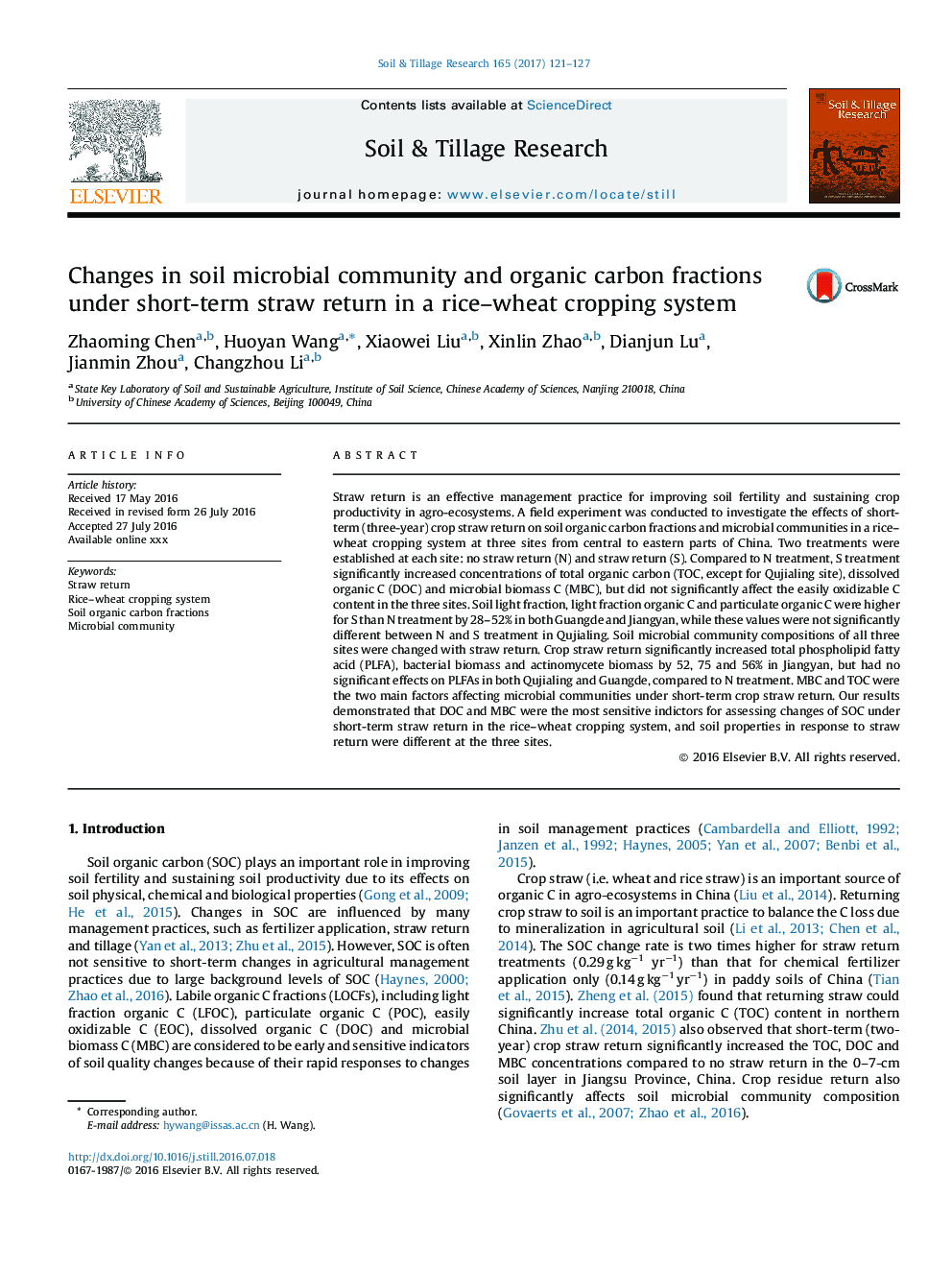| Article ID | Journal | Published Year | Pages | File Type |
|---|---|---|---|---|
| 6773291 | Soil and Tillage Research | 2017 | 7 Pages |
Abstract
Straw return is an effective management practice for improving soil fertility and sustaining crop productivity in agro-ecosystems. A field experiment was conducted to investigate the effects of short-term (three-year) crop straw return on soil organic carbon fractions and microbial communities in a rice-wheat cropping system at three sites from central to eastern parts of China. Two treatments were established at each site: no straw return (N) and straw return (S). Compared to N treatment, S treatment significantly increased concentrations of total organic carbon (TOC, except for Qujialing site), dissolved organic C (DOC) and microbial biomass C (MBC), but did not significantly affect the easily oxidizable C content in the three sites. Soil light fraction, light fraction organic C and particulate organic C were higher for S than N treatment by 28-52% in both Guangde and Jiangyan, while these values were not significantly different between N and S treatment in Qujialing. Soil microbial community compositions of all three sites were changed with straw return. Crop straw return significantly increased total phospholipid fatty acid (PLFA), bacterial biomass and actinomycete biomass by 52, 75 and 56% in Jiangyan, but had no significant effects on PLFAs in both Qujialing and Guangde, compared to N treatment. MBC and TOC were the two main factors affecting microbial communities under short-term crop straw return. Our results demonstrated that DOC and MBC were the most sensitive indictors for assessing changes of SOC under short-term straw return in the rice-wheat cropping system, and soil properties in response to straw return were different at the three sites.
Related Topics
Physical Sciences and Engineering
Energy
Renewable Energy, Sustainability and the Environment
Authors
Zhaoming Chen, Huoyan Wang, Xiaowei Liu, Xinlin Zhao, Dianjun Lu, Jianmin Zhou, Changzhou Li,
